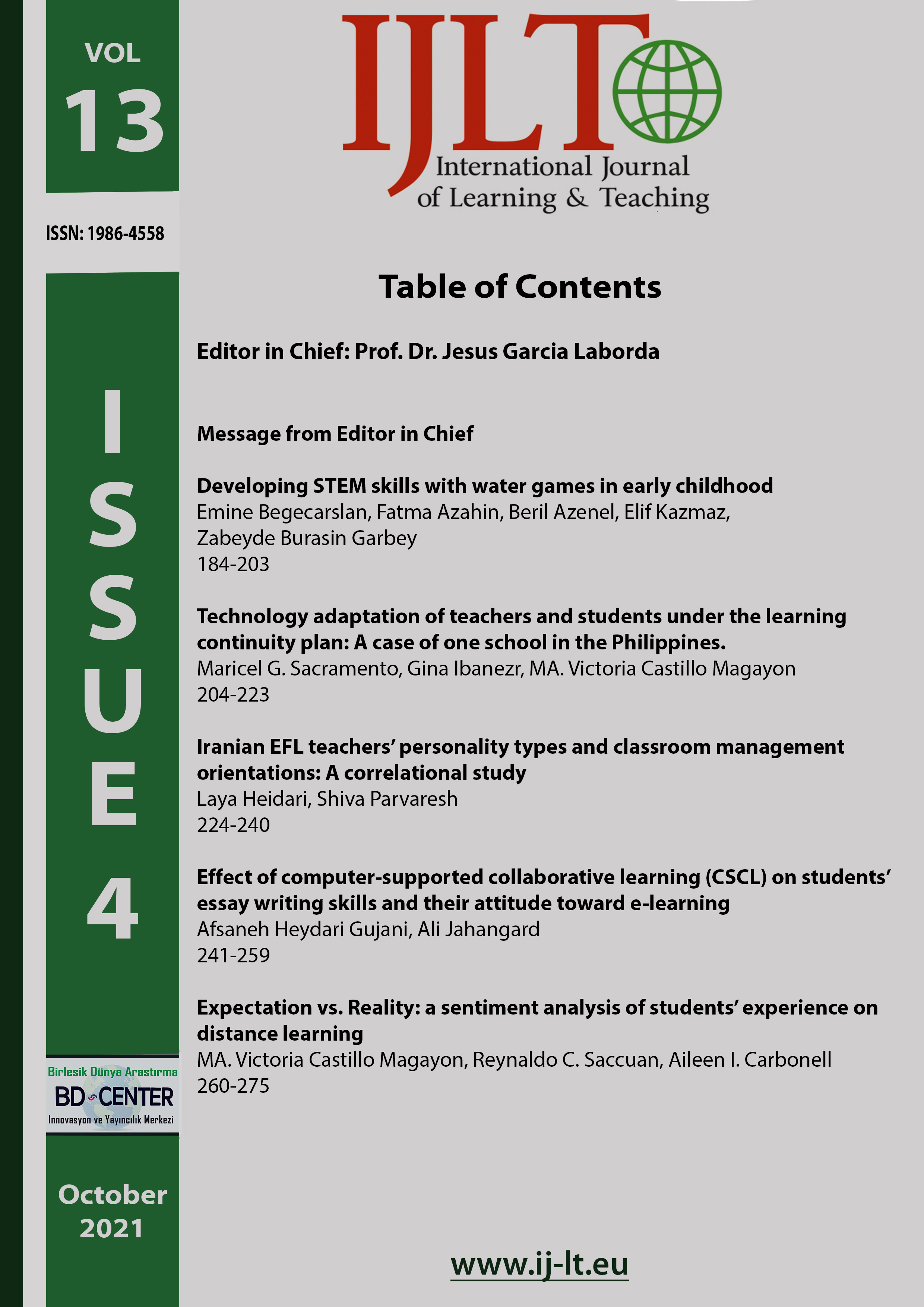Iranian EFL teachers’ personality types and classroom management orientations: A correlational study
Main Article Content
Abstract
Language learners’ achievement relies to a great extent on what goes on inside the classroom. The teachers’ personality types and their classroom management orientations play a role in such achievement. The present study intended to explore Iranian EFL teachers’ major personality types and classroom management orientations. Moreover, the relationship between their personality types and classroom management orientations were probed. Sixty EFL teachers were chosen through the convenience sampling method from foreign language institutes in Isfahan, Iran. The results showed that extroverted–sensing–thinking–judging type was the most frequent personality type and the interactionalist approach was the major classroom management orientation among Iranian EFL teachers teaching at language institutes. The findings of this study enhance EFL teachers’, as well as directors, of language institutes’ understanding of the personality type as one crucial factor related to EFL teachers’ behaviour management approaches. More implications of the results and future research directions are also discussed.
Keywords: Classroom, management orientations, effective teaching, Iranian EFL teachers, personality types
Downloads
Article Details

This work is licensed under a Creative Commons Attribution 4.0 International License.
Authors who publish with this journal agree to the following terms:
- Authors retain copyright and grant the journal right of first publication with the work simultaneously licensed under a Creative Commons Attribution License that allows others to share the work with an acknowledgement of the work's authorship and initial publication in this journal.
- Authors are able to enter into separate, additional contractual arrangements for the non-exclusive distribution of the journal's published version of the work (e.g., post it to an institutional repository or publish it in a book), with an acknowledgement of its initial publication in this journal.
- Authors are permitted and encouraged to post their work online (e.g., in institutional repositories or on their website) prior to and during the submission process, as it can lead to productive exchanges, as well as earlier and greater citation of published work (SeeThe Effect of Open Access).
